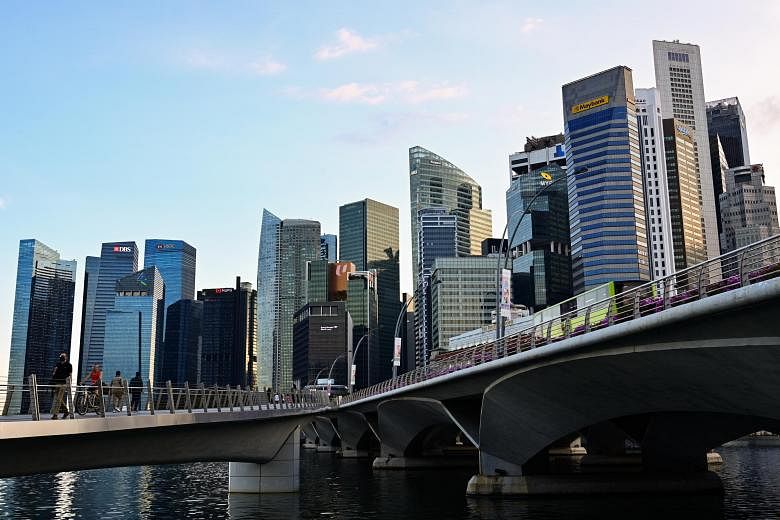SINGAPORE - Small and medium-sized enterprises (SMEs) in Singapore are keeping a close eye on their costs despite being largely confident they can cope with looming cost pressures, according to a DBS Bank survey released on Thursday (March 10).
More than 85 per cent of SMEs polled said that ensuring consistent cash flow and managing costs was a high business priority this year.
The survey also found that SMEs were less concerned about dealing with the impending goods and services tax (GST) hike and more worried about global interest rates and inflation. Labour costs and availability, as well as supply chain concerns, loomed large amid the backdrop of Russia's invasion of Ukraine.
The findings were from DBS' SME Pulse Check Survey, which was conducted after Singapore Budget 2022 was announced.
A total of 250 SMEs across a broad spectrum of industries were surveyed to better understand the needs and concerns of the SME community.
All medium-sized enterprises surveyed said they were confident of weathering the impact of impending GST hikes, and eight in 10 micro and small businesses said the same.
Regarding rising global interest rates, more than nine in 10 medium-sized enterprises are positive about being able to cope with its impact, while 75 per cent of micro and small businesses said they would be able to deal with it as well.
More than eight in 10 medium-sized enterprises were confident of dealing with inflationary pressures and 70 per cent of micro and small businesses expressed the same sentiments.
DBS group head of SME Banking Joyce Tee said: "SMEs feel more confident about tackling cost challenges, which points to the more resilient position that the business community is in today as compared with a year ago at the height of the Covid-19 pandemic.”
But she noted that business owners are taking a prudent approach by placing strong emphasis on their cash flow.
SMEs in the survey were mindful of the speedbumps ahead that could stymie their growth.
When asked about their top concerns for the year ahead, close to half said labour costs and availability was their top worry. This was followed by about 20 per cent who were most concerned about supply chain disruptions.
Commenting on potential supply chain risks due to geopolitical tensions, DBS senior economist Irvin Seah said: “The geopolitical risks emerging from the Ukraine crisis is a cause for concern, specifically with regards to the upside risks in energy, commodities and food prices globally.”
As the survey revealed that micro and small businesses are more worried about coping with rising costs, DBS will increase its efforts to reach out to these businesses, which typically face more challenges than their bigger counterparts in managing their balance sheets, added Ms Tee.
When asked about growth prospects for the year ahead, SMEs were generally positive, with less than 5 per cent indicating pessimism.
One factor contributing to this positive outlook could be that SMEs were on the whole profitable last year, said DBS. More than 90 per cent of those surveyed made profits last year, and over 40 per cent reported earnings increases of at least 10 per cent year on year.
When asked about what they looked for most in a banking partner, SMEs indicated their preference for a banking partner with a long track record of supporting businesses.
Only 1 per cent of SMEs would be satisfied with a purely digital banking partner.
However, when asked about discounts and preferential rates, only 5 per cent of medium-sized enterprises marked this as an important factor as compared with 20 per cent of micro and small businesses, highlighting differences in price sensitivity among SMEs.


